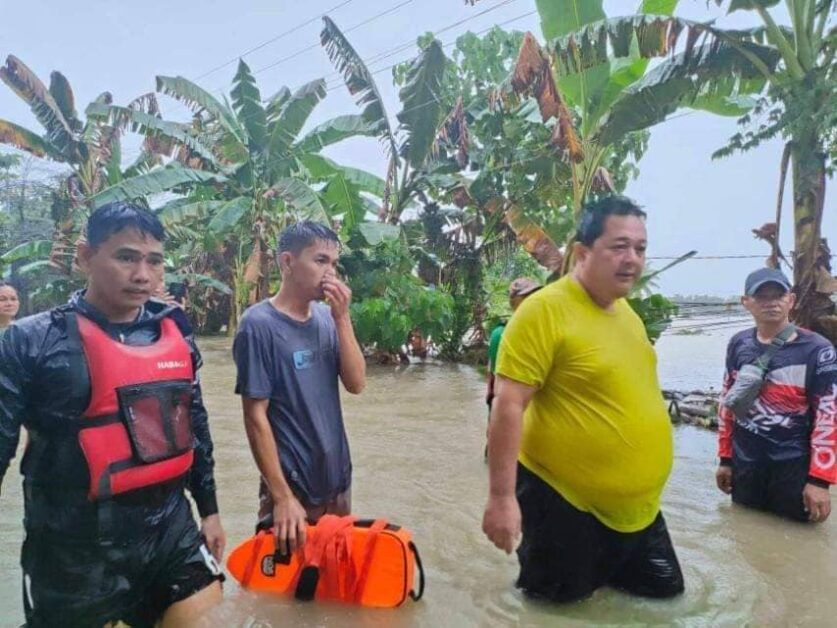DAVAO CITY (MindaNews / 05 November) – Heavy siltation in rivers and tributaries have contributed to the severe flooding in the municipality of Pigcawayan in North Cotabato, the mayor said as he appealed to the national government to help desilt the waterways.
Pigcawayan experienced the worst flooding incident in history on October 28, at the onslaught of Typhoon Paeng.
“I’m appealing to the national government to desilt the major rivers and tributaries to help address the severe flooding in our area. We cannot do this alone, we don’t have enough resources,” Agustin said.
Agustin’s appeal came as over a hundred hectares of ricefields in the low-lying villages of Pigcawayan remain submerged a week after Typhoon Paeng.

Agustin noted that over the years, the rivers that drain to the Ligawasan Marsh have accumulated too much silt since most of the mountains around the marsh area are already denuded.
During continuous heavy rains, he added, the floodwaters could no longer drain quickly to the Ligawasan Marsh due to silted waterways.
Ligawasan Marsh serves as the catch basin of all rivers flowing from the mountain ranges of Bukidnon and North Cotabato.
Last week’s flooding, spawned by heavy rains due to the storm, also submerged many villages in the neigboring towns of Libungan and Midsayap.
Agustin bared that the severe flooding last October 28 in Pigcawayan was the worst in town’s history. “This has never happened before. It’s the first time that the floodwaters reached the town proper.”
“Now that the severe flooding had hit our town, there’s a high probability that it could happen again. So we have to be prepared,”Agustin concluded
As of November 4, the local government has recorded P57 million worth of damages to agricultural crops and livestock and about 700 hectares of agricultural land, mostly rice farms.
At least 105 houses were also destroyed and nearly 6,000 families affected, the report added.
Road clearing operations are still ongoing in the mountainous parts of the villages of Kimarayag, Molok and Renibon after some parts were isolated when roads sustained damages due to landslides, the mayor said.
The mayor said climate change is also bringing in heavy rains now resulting to severe flooding.
To help mitigate the flooding in the future, the mayor vowed to push for an agroforestry program, adding that farmers should plant productive trees such as coconut and rubber in the mountainous areas.
Instead of planting hardwood varieties, the mayor pointed out that it’s better to plant coconut and rubber trees.
“Pag-abot sa panahon na mature na ang hardwood, putlon gyapon sang mga tao para ibaligya ang lumber. Pero kung rubber or mga lubi, mas mapuslan pa. May income pa an mga farmers dayon in few years lang” (When the hardwood matures, the people will cut off the tree and sell its lumber. But rubber or coconut trees have other uses. And farmers will earn in a few years), explained Agustin.
He said tress that are not of hardwood variety will also be cut off when they mature, to turn into charcoal. (MindaNews)
0 Comments